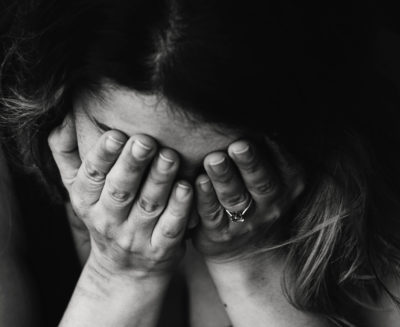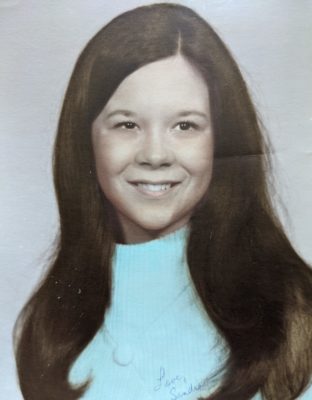This post describes, our recovery from the loss of our loved ones to a degenerative neurological condition called Huntington’s Disease. If you wish to read the story from the beginning, you can start here: How We Got Here…
At age 48, I began going to a nursing home every day. My husband was 49 and had become the youngest resident in that full care nursing facility. Huntington’s Disease had begun to take away his independence and the ability to care for himself. The median age of other residents was 70 to 80. Many of these older residents were much more active and healthy than Don, but he made friends quickly and was happy there.
After this nursing home closed, I moved him into another nursing facility, which was close to our home. However, stability was a problem. Within the first year, there were two changes of administrators, a new director of nurses was installed, and the nursing staff on the patient halls seemed to be in a near constant state of flux, with new faces appearing weekly.
Just as we would “connect” and get to know a nurse aide, they were gone. It was disheartening to see the poor attitudes most of the staff displayed, and the standard of patient care was soon on the decline. The administrators (new and old) tried to correct the patient problems in order to keep the patient headcount high, but the organization was struggling to keep afloat financially.
Seeing the bad trends, I tried to get my husband moved to another home, but the new home would call the facility to see what manner of care Don needed. In a few days, we were always told they did not have the necessary staff to care for HD patients. Maybe it was all coincidental, and maybe not.
I was a Mama Bear when it came to my husband’s care, and with eagle eyes I learned to spot problems. I never once raised my voice or used bad language, but the staff got to know me well and probably feared me. They knew that I would not tolerate substandard care for Don – no excuses were acceptable.
But it was not all bad. I must say that in almost every nursing home, there are precious nurses who have dedicated their lives to caring for senior citizens! Many work long hours, and give 110% to make sure that their residents receive the quality of care that they deserve – even if it means going against their own employers. These angel nurses deserve respect, thanks, and lots of praise, and I always made sure to thank the Lord for them!
So, if you are one of them – Thank you for your dedication and service!
❦ ❦ ❦ ❦ ❦ ❦
In a study published on March 20, 2021 by the World Health Organization, it was found that over 64% of nursing home staff members admitted to committing some form of abuse or neglect. However, staff members are not the only ones to worry about in long-term care facilities – other residents are just as capable of committing abuse. With increasing life expectancies in our older population, the demand for care homes will only increase.
An added problem has been the recent Covid epidemic, which greatly affected both the residents of our nation’s nursing homes and their families. Visits were denied and families had very little contact with their loved ones. In some cases, even state regulators were prevented from performing their legally mandated oversight responsibilities. These “protective measures” resulted in increasing confusion and isolation on the part of the residents, who could not fully understand why their families did not visit. And the families were frustrated at being unable to see and touch and reassure their family members that they were loved and cherished.
However, in even the best of times, older people are only becoming more vulnerable due to their dependencies related to cognitive and functional self-care challenges. For people over age 65, one in ten suffers from some form of elder abuse – that statistic according to the National Council on Aging. Some estimates say that as many as five million elders are abused each year. One study estimated that only 1 in 24 cases of abuse are reported to authorities. Sadly, two thirds of the perpetrators are adult children or spouses.
There are warning signs of elder abuse, which can include physical abuse, emotional abuse, financial abuse, sexual abuse, and neglect. How can we keep our loved ones safe in a nursing home?
- Remember that the lack of family visits increases a resident’s vulnerability to abuse and neglect. So keep your eyes, ears, and nose open. Look and listen to staff, and don’t forget to sniff! The home should not have bad smells consistently. If it does, there are problems.
- Check for bedsores or pressure ulcers on your loved one. These preventable injuries typically result from being left in bed for extended hours without supervision.
- Are they given basic hygiene, adequate food, and hydration? These are all areas where inadequate care can quickly escalate a critical situation into a tragic one.
- Look for behavioral red flags! Changes due to the progression of a degenerative condition are typically slow. But watch for sudden changes in personality, mood, and sleeping or eating habits. If you see signs of depression, fear, or lethargy, take immediate action and talk to the head nurse.
- Stay in touch with nursing staff. Compliment them when they are doing a good job. We all need encouragement and praise. However, never brush off possible signs of abuse. Always report it, and don’t be afraid to call 911 immediately if you have urgent concerns. Do not let things slide until there is an injury or gross negligence. Address problems before they become a bad habit.
Of course all this watchfulness goes for naught if you don’t know who to talk to! Step one is to look for a bulletin board. Most jurisdictions require care facilities to prominently display documents identifying the specific rights of a patient and who to contact if you feel those rights are being violated.
Additionally, in the USA, every state has a number of ombudsmen available to speak up for your family members who can’t speak for themselves. When care is insufficient or a nursing home isn’t operating in your best interests, an ombudsman can step in and help you obtain the quality of care your loved one requires and deserves. Their services are free and impartial. The second nursing home that Don was in had a wonderful ombudsman. I had never heard the word before but soon learned what a valuable asset he was to that home. He held a monthly support group meeting for families of residents, and if complaints were expressed, we knew he would get with the right staff to correct the problem.
If you require assistance from an ombudsman for a case of elder abuse or any other reason, you can locate one at the National Long Term Care Ombudsman Resource Center. They can provide a name, phone number, and address for every ombudsman in every state. Please use this wonderful resource.
Here are some general resources for additional information:
National Council on Aging
DoSomething.org
ProPublica Nursing Home Inspect Summary
The Global Role of the World Health Organization
Brain & Life magazine is published 6 times a year and provides information about Neurology for everyday living. Subscriptions are completely free at: https://www.brainandlife.org/the-magazine
Finally, if you reside outside the United States, your first call should be to the National Health Service for your country. In addition, local support groups or doctors can sometimes provide you leads on where to go for help.
In Christ, Amen ☩
❦ ❦ ❦ ❦ ❦ ❦
A prayer for when your heart aches with concern for your family in long term healthcare…
“Blessed are You, Lord God, King of the Universe. It is right that I should at all times and in all circumstances bless You for loving us. But today I want to bless You especially for Your watching over my family and friends in long-term healthcare facilities. Bless the nursing staff with wisdom and patience as they care for those who live there. Many residents are in their last weeks or months of life and I pray that You would help them feel loved, cherished, and safe. Amen.”




